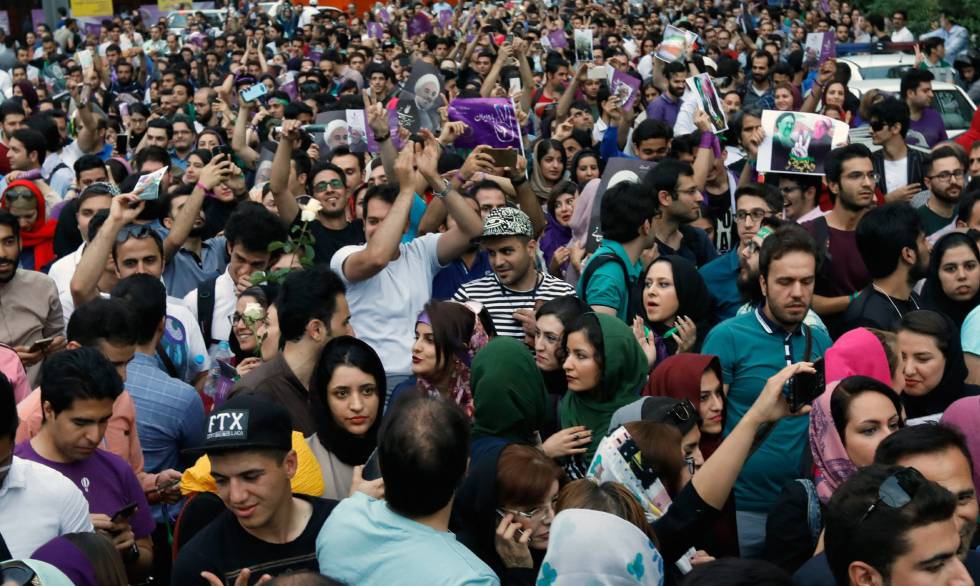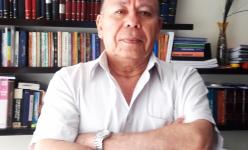Photo

An honor guard outside the Great Hall of the People in Beijing last month. The Chinese government killed or imprisoned 18 to 20 C.I.A sources from 2010 through 2012. CreditWang Zhao/Agence France-Presse — Getty Images
WASHINGTON — The Chinese government systematically dismantled C.I.A. spying operations in the country starting in 2010, killing or imprisoning more than a dozen sources over two years and crippling intelligence gathering there for years afterward.
Current and former American officials described the intelligence breach as one of the worst in decades. It set off a scramble in Washington’s intelligence and law enforcement agencies to contain the fallout, but investigators were bitterly divided over the cause. Some were convinced that a mole within the C.I.A. had betrayed the United States. Others believed that the Chinese had hacked the covert system the C.I.A. used to communicate with its foreign sources. Years later, that debate remains unresolved.
But there was no disagreement about the damage. From the final weeks of 2010 through the end of 2012, according to former American officials, the Chinese killed at least a dozen of the C.I.A.’s sources. According to three of the officials, one was shot in front of his colleagues in the courtyard of a government building — a message to others who might have been working for the C.I.A.
Still others were put in jail. All told, the Chinese killed or imprisoned 18 to 20 of the C.I.A.’s sources in China, according to two former senior American officials, effectively unraveling a network that had taken years to build. tinue reading the main story
The previously unreported episode shows how successful the Chinese were in disrupting American spying efforts and stealing secrets years before a well-publicized breach in 2015 gave Beijing access to thousands of government personnel records, including intelligence contractors. The C.I.A. considers spying in China one of its top priorities, but the country’s extensive security apparatus makes it exceptionally hard for Western spy services to develop sources there.
At a time when the C.I.A. is trying to figure out how some of its most sensitive documents were leaked onto the internet two months ago by WikiLeaks, and the F.B.I. investigates possible ties between President Trump’s campaign and Russia, the unsettled nature of the China investigation demonstrates the difficulty of conducting counterespionage investigations into sophisticated spy services like those in Russia and China.
The C.I.A. and the F.B.I. both declined to comment.
Details about the investigation have been tightly held. Ten current and former American officials described the investigation on the condition of anonymity because they did not want to be identified discussing the information.
Photo
Investigators still disagree how it happened, but the unsettled nature of the China investigation demonstrates the difficulty of conducting counterespionage investigations into sophisticated spy services.CreditCarolyn Kaster/Associated Press..
The first signs of trouble emerged in 2010. At the time, the quality of the C.I.A.’s information about the inner workings of the Chinese government was the best it had been for years, the result of recruiting sources deep inside the bureaucracy in Beijing, four former officials said. Some were Chinese nationals who the C.I.A. believed had become disillusioned with the Chinese government’s corruption.
But by the end of the year, the flow of information began to dry up. By early 2011, senior agency officers realized they had a problem: Assets in China, one of their most precious resources, were disappearing.
The F.B.I. and the C.I.A. opened a joint investigation run by top counterintelligence officials at both agencies. Working out of a secret office in Northern Virginia, they began analyzing every operation being run in Beijing. One former senior American official said the investigation had been code-named Honey Badger.
As more and more sources vanished, the operation took on increased urgency. Nearly every employee at the American Embassy was scrutinized, no matter how high ranking. Some investigators believed the Chinese had cracked the encrypted method that the C.I.A. used to communicate with its assets. Others suspected a traitor in the C.I.A., a theory that agency officials were at first reluctant to embrace — and that some in both agencies still do not believe.
Their debates were punctuated with macabre phone calls — “We lost another one” — and urgent questions from the Obama administration wondering why intelligence about the Chinese had slowed.
The mole hunt eventually zeroed in on a former agency operative who had worked in the C.I.A.’s division overseeing China, believing he was most likely responsible for the crippling disclosures. But efforts to gather enough evidence to arrest him failed, and he is now living in another Asian country, current and former officials said.
There was good reason to suspect an insider, some former officials say. Around that time, Chinese spies compromised National Security Agency surveillance in Taiwan — an island Beijing claims is part of China — by infiltrating Taiwanese intelligence, an American partner, according to two former officials. And the C.I.A. had discovered Chinese operatives in the agency’s hiring pipeline, according to officials and court documents.
But the C.I.A.’s top spy hunter, Mark Kelton, resisted the mole theory, at least initially, former officials say. Mr. Kelton had been close friends with Brian J. Kelley, a C.I.A. officer who in the 1990s was wrongly suspected by the F.B.I. of being a Russian spy. The real traitor, it turned out, was Mr. Hanssen. Mr. Kelton often mentioned Mr. Kelley’s mistreatment in meetings during the China episode, former colleagues say, and said he would not accuse someone without ironclad evidence.
Those who rejected the mole theory attributed the losses to sloppy American tradecraft at a time when the Chinese were becoming better at monitoring American espionage activities in the country. Some F.B.I. agents became convinced that C.I.A. handlers in Beijing too often traveled the same routes to the same meeting points, which would have helped China’s vast surveillance network identify the spies in its midst.
Some officers met their sources at a restaurant where Chinese agents had planted listening devices, former officials said, and even the waiters worked for Chinese intelligence.
This carelessness, coupled with the possibility that the Chinese had hacked the covert communications channel, would explain many, if not all, of the disappearances and deaths, some former officials said. Some in the agency, particularly those who had helped build the spy network, resisted this theory and believed they had been caught in the middle of a turf war within the C.I.A.
Still, the Chinese picked off more and more of the agency’s spies, continuing through 2011 and into 2012. As investigators narrowed the list of suspects with access to the information, they started focusing on a Chinese-American who had left the C.I.A. shortly before the intelligence losses began. Some investigators believed he had become disgruntled and had begun spying for China. One official said the man had access to the identities of C.I.A. informants and fit all the indicators on a matrix used to identify espionage threats.
After leaving the C.I.A., the man decided to remain in Asia with his family and pursue a business opportunity, which some officials suspect that Chinese intelligence agents had arranged.
Officials said the F.B.I. and the C.I.A. lured the man back to the United States around 2012 with a ruse about a possible contract with the agency, an arrangement common among former officers. Agents questioned the man, asking why he had decided to stay in Asia, concerned that he possessed a number of secrets that would be valuable to the Chinese. It’s not clear whether agents confronted the man about whether he had spied for China.
The man defended his reasons for living in Asia and did not admit any wrongdoing, an official said. He then returned to Asia.
By 2013, the F.B.I. and the C.I.A. concluded that China’s success in identifying C.I.A. agents had been blunted — it is not clear how — but the damage had been done.
The C.I.A. has tried to rebuild its network of spies in China, officials said, an expensive and time-consuming effort led at one time by the former chief of the East Asia Division. A former intelligence official said the former chief was particularly bitter because he had worked with the suspected mole and recruited some of the spies in China who were ultimately executed.
China has been particularly aggressive in its espionage in recent years, beyond the breach of the Office of Personnel Management records in 2015, American officials said. Last year, an F.B.I. employee pleaded guilty to acting as a Chinese agent for years, passing sensitive technology information to Beijing in exchange for cash, lavish hotel rooms during foreign travel and prostitutes.
In March, prosecutors announced the arrest of a longtime State Department employee, Candace Marie Claiborne, accused of lying to investigators about her contacts with Chinese officials. According to the criminal complaint against Ms. Claiborne, who pleaded not guilty, Chinese agents wired cash into her bank account and showered her with gifts that included an iPhone, a laptop and tuition at a Chinese fashion school. In addition, according to the complaint, she received a fully furnished apartment and a stipend.
El proyecto de una ‘OTAN árabe’ inquieta a Irán
El intento de EEUU y Arabia Saudí de fomentar una alianza militar de países islámicos aísla a Teherán.

http://internacional.elpais.com/internacional/2017/05/21/actualidad/1495383765_080765.html
Si hay alguien que está siguiendo con atención el viaje de Donald Trump a Arabia Saudí e Israel, son los responsables iraníes. Saben que la alianza que el presidente de Estados Unidos ha ofrecido en Riad es, sobre todo, “frente a Irán”, tal como este domingo ha dejado claro el propio rey Salmán en la apertura de una cumbre islámica a la que no se ha invitado a Teherán. Maestros de la retórica, no se dejan llevar por ella y esperan hechos concretos antes de actuar. Sin embargo, los planes para formar una OTAN árabe con el respaldo de EEUU suscitan inquietud. La creciente asertividad saudí dificulta el deseo de apertura del reelegido presidente Hasan Rohaní.
La semana bonapartista de Macron
Un presidente enérgico da sus primeros pasos para «refundar» el modelo político francés.




Comentarios recientes